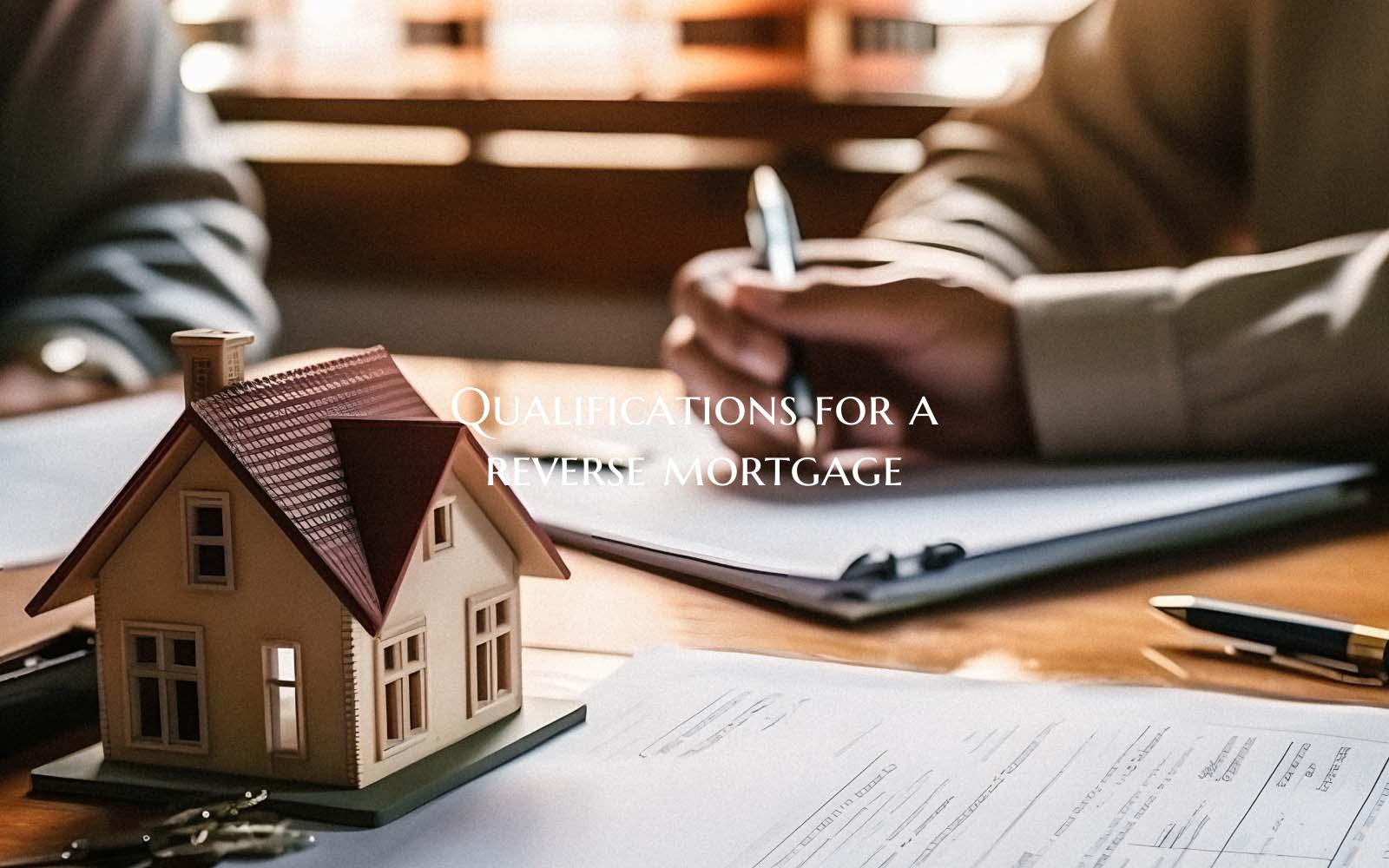Qualifications for a reverse mortgage

A reverse mortgage, also known as a Home Equity Conversion Mortgage (HECM), is a type of loan available to homeowners aged 62 and older that allows them to access a portion of their home equity as cash. Unlike a traditional mortgage where the homeowner makes monthly payments to the lender, with a reverse mortgage, the lender makes payments to the homeowner.
To qualify for a reverse mortgage, homeowners need to meet certain criteria. Here are the key qualifications for obtaining a reverse mortgage:
1. Age Requirement: The primary qualification for a reverse mortgage is that the borrower must be at least 62 years old. This age requirement ensures that the homeowner is eligible to access this financial product designed for senior citizens.
2. Homeownership: The homeowner must own the property outright or have a low mortgage balance that can be paid off with the proceeds from the reverse mortgage. The property must also be the borrower's primary residence.
3. Financial Assessment: While there are no income requirements to qualify for a reverse mortgage, borrowers are required to demonstrate the ability to pay property taxes, insurance, and other ongoing property charges.
4. Property Type: The property being used for the reverse mortgage must be a single-family home, a multi-unit property with up to four units, a condominium approved by the Federal Housing Administration (FHA), or a manufactured home that meets FHA requirements.
5. Credit and Income: Unlike traditional mortgages, a reverse mortgage does not have strict credit score or income requirements. However, lenders may assess the borrower's credit history and financial stability to ensure they can meet their financial obligations.
6. Counseling: Potential reverse mortgage borrowers are required to undergo counseling with an independent HUD-approved counselor. The counselor will provide information about the features and implications of a reverse mortgage, helping borrowers make an informed decision.
7. Financial Responsibility: Reverse mortgage borrowers are responsible for maintaining the property, paying property taxes, homeowners insurance, and any other applicable fees. Failure to meet these obligations could result in defaulting on the loan.
In conclusion, a reverse mortgage can be a viable option for eligible homeowners looking to access their home equity in retirement. By meeting the qualifications outlined above, homeowners can tap into this financial tool to supplement their income, cover healthcare expenses, or fund other financial needs. It is essential for prospective borrowers to fully understand the terms and responsibilities associated with a reverse mortgage before proceeding with the application process.
